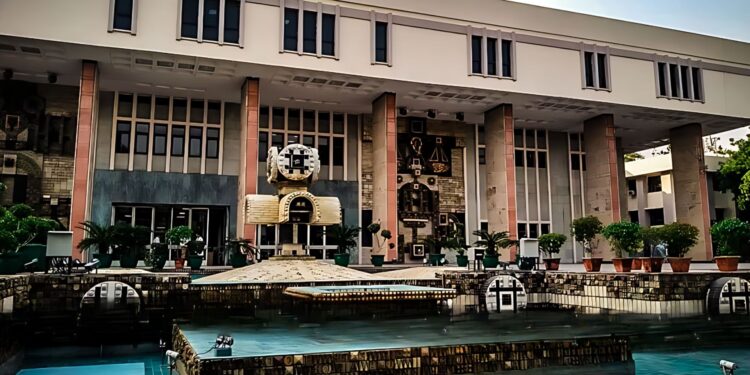The Delhi High Court recently ruled that not every violation of a court order constitutes contempt of Court, emphasizing that an act qualifies as contempt only if there is intent to disregard the order. This observation was made in the case Viterra BV vs. Sharp Corp Ltd, where the Court dismissed a contempt petition filed by Canadian company Viterra BV against Sharp Corp Ltd.
Justice Hari Shankar, in his judgment, clarified, “Every disobedience or breach of a court order is not contempt. Intent is the essence of contempt. Without intent, there can be no contempt.” The case centered on a property in Siraspur, New Delhi, which was allegedly protected by an injunction barring its sale or transfer. Viterra accused Sharp of willfully violating a court order from June 3, 2022, that prevented such transactions.
The dispute involved the sale of the Siraspur property in November 2022, which Viterra claimed breached the Court’s injunction. Sharp, on the other hand, argued that the sale was valid as the property was subject to the State Bank of India’s (SBI) prior claim and was not mortgaged or pledged. The SBI confirmed the property was not mortgaged but acknowledged Sharp’s financial dealings.
The Court explained that contempt of Court is rooted in an intentional disregard of a court order and that disobedience does not automatically constitute contempt unless done willfully. Referring to Section 2(b) of the Contempt of Courts Act, 1971, which defines civil contempt as willful disobedience, the Court emphasized that an act is not contemptuous without an intent to undermine the Court’s authority.
The Court further noted that courts often offer parties an opportunity to remedy their mistakes before taking contempt actions. If a party continues to violate an order despite being given a chance to comply, it is assumed that the disobedience is intentional, which may then lead to contempt charges.
Given the quasi-criminal nature of civil contempt, where penalties could involve imprisonment, the Court stressed the importance of careful and balanced judgment when determining if contempt has occurred. “Courts must not be overly sensitive or reactive in contempt matters,” Justice Shankar remarked.
The Court also highlighted that ambiguity in a court order can serve as a defense against a contempt petition. If an order is open to multiple interpretations, it cannot form the basis of contempt. The Court ruled that the June 2022 order in question was not violated willfully, as Sharp had acted in good faith to fulfill its financial obligations. The property sale, it found, complied with existing financial agreements and was aimed at repaying loans.
Consequently, the Court dismissed Viterra’s contempt petition, ruling that Sharp had not willfully disobeyed the Court’s order. The Siraspur property sale was made to settle pre-existing debts, with proceeds used exclusively for loan repayment.
Viterra was represented by Senior Advocate Darpan Wadhwa, assisted by Advocates Raunaq B Mathur and Keshav Somani. Advocates Siddharth Sangali and Harshita Agrawal represented SBI, while Sharp Corp was represented by Senior Advocate Vikram Nankani, along with Advocates Arvind Kumar, Heena George, Karan Bharihoke, and Sarthak Sachdev.

















